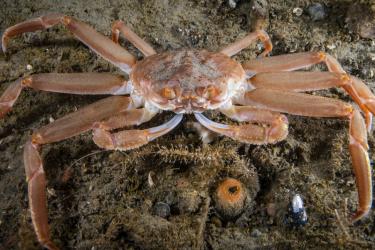This year’s ICCAT meeting was characterized by an unprecedented level of engagement from a broad range of parties that joined together to promote the sustainable management in ICCAT fisheries. This collaboration is critical to the effective work of ICCAT, and we hope that these relationships will continue to be fostered and strengthened in the future.
Negotiations on amendments to the 1969 ICCAT Convention were advanced to a near-final stage. The amended Convention will reflect modern principles, such as the precautionary and ecosystem approaches to fisheries management, clarify the Commission’s management authority, particularly for sharks, and improve the governance of the Commission.
In keeping with another major U.S. priority, the electronic system for tracking bluefin tuna catch and trade is near completion and we anticipate that it will be ready for full implementation in the spring of 2016. This should help address and prevent illegal, unreported and unregulated (IUU) fishing, and help improve management of the stock by providing ready access to data about catch and trade.
We reached agreement on the development of harvest control rules and management strategy evaluation as important tools to support future decision-making. This measure details the process by which alternative biological reference points (i.e., threshold and limit biomass levels, and the target fishing mortality rate) will be identified and tested by the Standing Committee on Research and Statistics (SCRS). North Atlantic albacore will be the first stock; a management objective has been defined and the development of harvest control rules will continue in 2016. The Commission will provide specific input in three areas for individual stocks: (1) management objectives; (2) acceptable levels of probability (e.g., of achieving targets or avoiding limits); and (3) timeframes for ending overfishing and/or rebuilding.
We are disappointed that the Commission did not do more to address overfishing of bigeye tuna, despite the clear advice from the SCRS, which called for a reduction in the total allowable catch (TAC) and in the fishing mortality on the smallest juvenile bigeye tuna that are caught in the Gulf of Guinea. Tropical tunas support important U.S. commercial and recreational fisheries. With this in mind, we sought a more comprehensive approach to rebuild the stock with greater certainty, including a lower TAC, as well as a longer and larger time/area closure to protect juveniles. Although the major players in the fishery rejected these positions, we will continue to manage bigeye tuna responsibly within the United States.
Atlantic-wide TAC levels for overfished stocks of blue marlin and white marlin will remain in effect until new scientific advice is available in 2018. We had hoped to include provisions to require the use of circle hooks to minimize post-release mortality, and related scientific research, but these efforts were rejected.
With respect to sharks, a new measure requires the release of porbeagle sharks encountered alive in ICCAT fisheries and, if catches of porbeagle increase beyond 2014 levels in the future, additional actions will be considered. The United States again proposed to prohibit shark finning at sea and to require sharks that are landed to have fins naturally attached. The number of co-sponsors for this proposal increased substantially, from 12 in 2014 to 30 in 2015, now more than a majority of all ICCAT parties. Despite this groundswell of support, a few parties declared their staunch opposition to this measure, and it was not adopted.
ICCAT invested a significant amount of time and effort to review the compliance of its 50 Contracting Parties with existing obligations, evaluating various reporting requirements as well as conservation and management measures. There was demonstrated improvement in ICCAT parties’ reporting of catch data and other information this year, but there is further work to do to ensure that all parties are in full compliance with all reporting obligations. The United States will continue to push ICCAT and its parties to be forward leaning and to prioritize the implementation of a robust and transparent compliance process.


